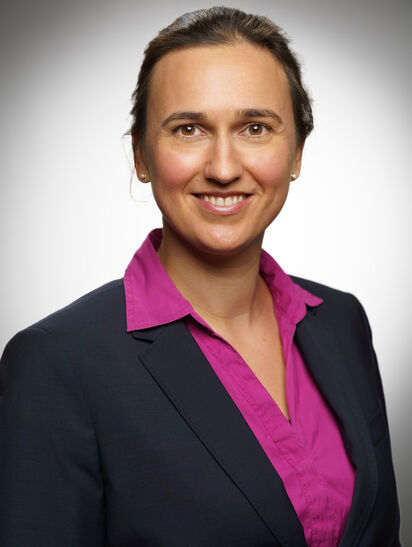Master in Material Engineering and Industrial Heritage Conservation

A Master in Material Sciences and Industrial Heritage Conservation (MEIHC) opens excellent new job prospects, provides the opportunity to learn more about sustainability issues, and prepares for organisational and leadership assignments.
Materials science is a cross-sectional discipline in engineering that accompanies products throughout their entire life span. In this context, aspects of sustainability are gaining importance: materials produced using renewable energies or new manufacturing technologies through additive manufacturing. For consistent use of products, their service life and recyclability are optimized.
After their life cycles have been completed, objects of industrial heritage raise the issue of conservation instead of demolition. Former collieries, steelworks and other objects can be put to new use. The modular structure of the MEIHC allows to combine aspects of humanities and science when exploring questions of how to manage reuse and conservation. What do engineers need to know about the history of the materials used and the buildings constructed from them? How can this knowledge help to develop appropriate coating systems or find suitable replacement materials? How does it help to manage decay processes in a controlled manner?
To resolve such challenges, graduates will develop a technical comprehension of damages caused by aging, tear and wear and corrosion and assess those regarding their cultural dimension and impact. They will also learn to handle historic assets and apply new manufacturing technologies as well as tailor-made material solutions.
Students can choose between two majors: Industrial Heritage Conservation and Material Engineering.
The research-oriented modules, offered in cooperation with the Zollverein Foundation at the UNESCO heritage site, help graduates to develop and solve own queries and to apply their knowledge practically at object of industrial heritage.
The cooperation with the Deutsches Bergbau-Museum Bochum, Leibniz Research Museum for Georesources, enables the students to use the infrastructures of the institution in addition to a professional exchange with the staff of the research areas material science and research laboratory.
The programme is taught in English (exception: some optional compulsory modules).
THGA is a state-accredited university and does not charge tuition fees. The only contribution due is a small fee for the use of university facilities and public transport in NRW.
Facts and figures – overview
Degree:
Master of Science (M.Sc.)
Duration:
Full-time: 4 semesters
Part-time: 6 semesters
Programme start/application:
The program is designed to start in the winter semester. Due to this, there may be time delays when starting the study program in the summer semester.
Application deadline for the winter semester 2025/2026: 31. August 2025
Application deadline for the summer semester 2026: 28. February 2026
Please note:
The application deadline for international applicants for the winter semester 2025/2026 begins on 05.05.2025 and ends on 19.05.2025.
Entry requirements:
A first-level university degree qualifying for a relevant profession in Applied Material Sciences or similar (Bachelor or German Diplom) with an overall grade of “good” or higher. Graduates with a degree in other fields or a lower overall grade will be admitted after their aptitude has been identified in an aptitude test.
Proficiency in German and/or English language as per examination regulations.
Contact
Prof. Dr.-Ing. Nicole LefortHead of the study program
- Nicole.Lefort[at]thga.de
- Telephone
- +49 234 968-3457
- Office
- G7 R011

Annika LüttmannStudent counsellingProgramme study advice
- Annika.Luettmann[at]thga.de
- Telephone
- +49 234 5877-2949
- Office
- G5 R308a

Downloads
- Examination regulationspdf, 405 KB
- Appendix 7 examination regulationspdf, 636 KB
- Flyer MEIHCpdf, 1 MB
- Study plan (fulltime)pdf, 218 KB
- Study plan (parttime)pdf, 219 KB




